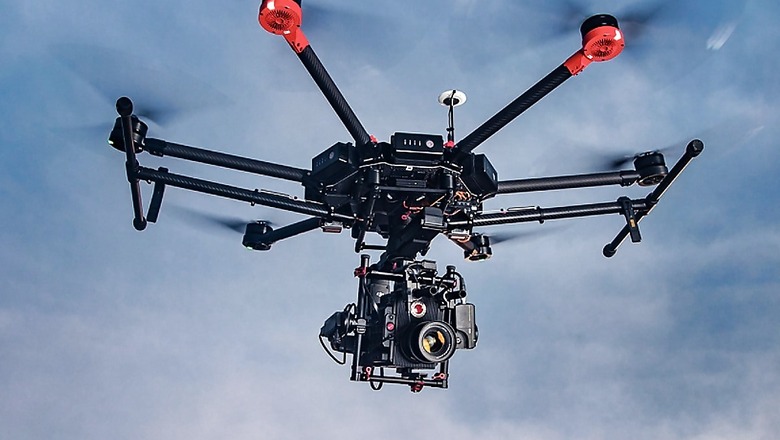
views
As questions regarding the use of facial recognition by law-keeping bodies continue to be raised around the world, a fresh piece of controversy appears to have risen regarding more use of technology by police forces in USA. The issue at hand, this time round, is the use of drones in a police bid to ensure that social distancing and other necessary Covid-19 precautions are taken by visitors at Twin Lake beach near Minneapolis, USA. While the intentions may have been straightforward, the outcome has led to the beach visitors claiming undertones of racism, sexism and certain violation of privacy by the police bodies who oversaw the operation.
According to a report by Slate, while the Twin Lake beach may not be definitely designated as a nude beach, it is not unnatural for visitors to go sunbathing here, topless. This may have been at the centre of all problems, since the overseeing Golden Valley and Minneapolis Park police departments had equipped a DJI Matrice drone, equipped with a zoom camera, to fly around the beach and be sentry for the day, on July 10. The initial objective was reportedly to make sure that visitors to the beach avoided “unnecessary personal interactions” in light of the Covid-19 pandemic. On the contrary, police accounts state that they observed acts of nudity, drinking alcohol in a public place and other such instances, which seemingly qualified as unnecessary personal interactions.
However, upon reaching the beach, the police officers were reportedly confronted by the irate beach visitors, who were obviously affronted by the drone having captured footage of them, naked. Escalating the issue further were allegations of subliminal racism, where at least two visitors are said to have claimed that the police drone specifically targeted people with darker skin colour. While others pointed out that the police took no action against the men who took off their tops as well, yet another concerning issue compounded the trouble for the police – while they claimed to have used the drone in order to reduce chances of Covid-19 transmission, the police officers themselves were not wearing their face masks while talking to the beach visitors.
The incident highlights the need for stricter regulations on which circumstances can warrant the use of technologies such as drones and facial recognition by police bodies. More than anything else, the use of a drone in an area where beach goers are commonly known to prefer being topless had to spark off questions about violation of privacy. The allegations of racism aren’t all together surprising, either – facial recognition technology so far has also been seen to exhibit skin colour bias, something that many technology makers have also acknowledged over time.
The Twin Lake beach incident happened to coincide with a similar time frame when a law on police drone usage, backed by Civil Liberties activists in USA, is being adopted in many areas in the country. The four-part law states that police bodies will have to procure a warrant if they wish to use a drone for any law-keeping act, only use drones without warrant in public area if there is confirmed suspicion of criminal activity, document all warrant-less cases of drone usage, and delete all drone footage within seven days of recording, if it doesn’t play a direct role in an active criminal case.
While this incident does not directly imply a larger narrative for India, it’s important to consider the precedent that such cases set globally. Sooner than later, India is sure to adopt drones as part of technologies for law enforcers, at which time it will be extremely important to create a legal framework that defines which cases would warrant public usage of drones. There needs to be safeguards that allow individuals to defend themselves against being recorded by police, especially in situations where such privacy-ending acts are surplus to necessity.
While one of the police arguments put forth in USA was that the beach goers were already in a public space, and hence should not have had particular concerns about being ‘private’, and that the drone was only the equivalent of a CCTV surveillance camera, it still seems to be within reasonable grounds to not want to be recorded when you are unwinding at a beach – topless or otherwise. Take the ominous signage of drones and the Big Brother-like surveillance state impression they create among common people, law keepers around the world have a long way to go before they can expect technologies such as drones to be accepted widely.




















Comments
0 comment